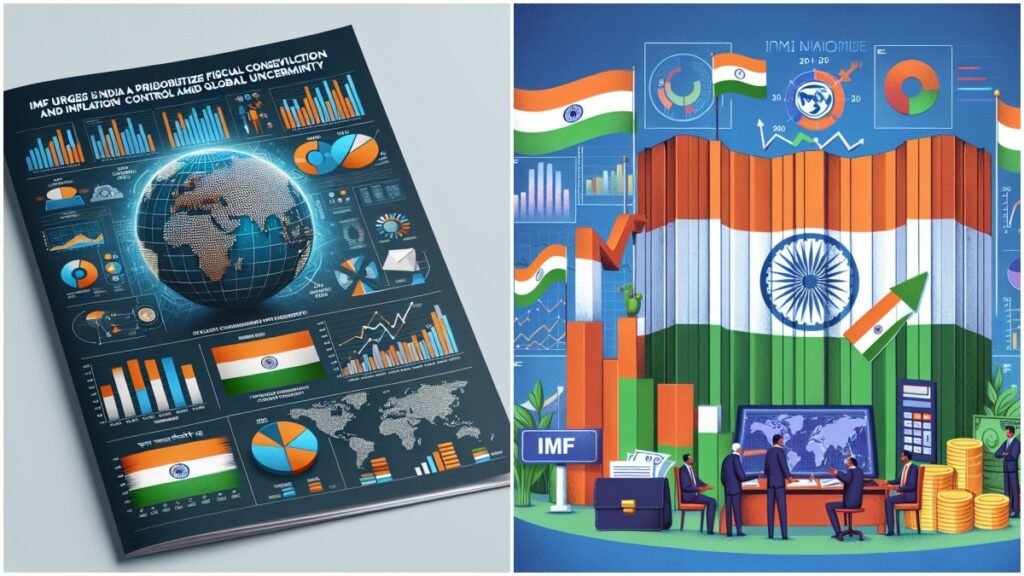
New Delhi: The key insights from the 2024 IMF Annual Report specific to India, focusing on economic growth forecasts, fiscal policies, inflation rates, structural reforms, and IMF recommendations:
Economic Growth Forecasts
- The report acknowledges that India, like other emerging markets, faces moderate medium-term growth prospects and aligns with the broader global slowdown projection. Despite resilience, global growth by 2029 is expected to average only 3.1%, impacting economies like India reliant on robust growth for poverty alleviation and employment generationcal Policies and Inflation
- Fiscal Consolidation: India is advised to pursue fiscal consolidation strategies to maintain economic stability and reduce public debt. The IMF warns that delaying fiscal adjustments could necessitate more severe measures later, especially in light of elevated inflation risks in emerging economies like India .
- Infrol: India’s inflation control policies remain critical, with a focus on country-specific adjustments to maintain price stability amid diverse inflation dynamics across emerging markets. Tailored approaches to inflation management are emphasized to balance risks between premature easing and prolonged tightening of monetary policies .
Structural RGreen Investments and Technology: India is encouraged to foster green investments and digital transitions to support economic resilience and boost productivity. Specific recommendations include enhancing policies for renewable energy and incentivizing technology adoption, both of which are key to achieving sustainable, long-term growth .
- Labor and Gender InclusIMF highlights the importance of labor market reforms, including increasing female workforce participation, as a way to drive inclusive growth in India. Governance improvements and easing regulatory burdens are also recommended to foster a more conducive business environment .
Recommendations for Economic Res Stability
- Debt Management: India is advised to continue strengthening its debt management framework. With rising global debt servicing costs, maintaining manageable debt levels will be essential for India’s economic stability, especially given global debt refinancing risks .
- Strengthening Financial Stability: IMF stimportance of financial stability and suggests policy improvements for macroeconomic resilience against potential external shocks, such as global financial fluctuations and geopolitical risks. Measures include robust financial regulations and strategic reserves management .

Sustainable Development Goals
- Climate Resiliencence sustainable development, the IMF recommends that India enhance climate adaptation initiatives, focusing on disaster resilience and emissions reduction. The IMF emphasizes that climate-related policies will aid in transitioning to a low-carbon economy, vital for India’s environmental and economic future .
These highlights underscore the IMF’s tailored recommendations foravigate the current global economic landscape while fostering sustainable, inclusive growth.
Advertisement





















































